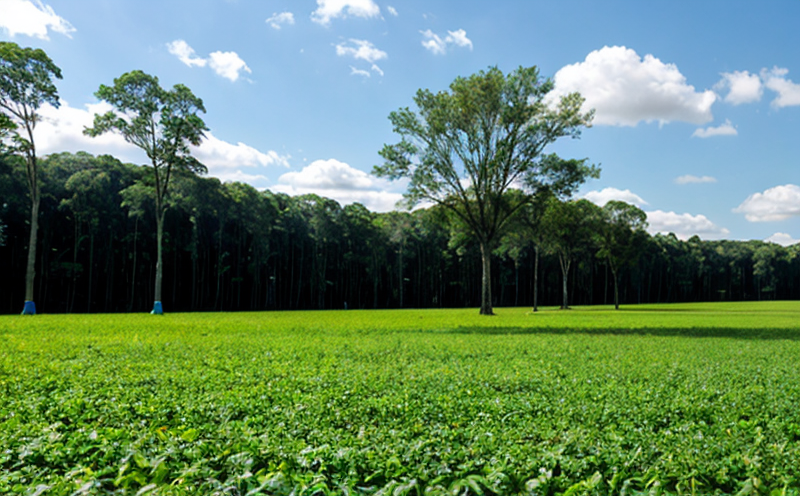Resource Efficiency Testing of Products
In today's fast-evolving market landscape, resource efficiency testing has become a critical component in ensuring sustainable product development and compliance with global standards. Resource efficiency refers to the ability of products to minimize waste generation throughout their lifecycle while maximizing the use of resources. This service focuses on evaluating how efficiently materials are used during production processes and how well a product can perform its intended function without compromising quality or safety.
Resource efficiency testing is particularly important for consumer goods manufacturers who aim to reduce environmental impact by optimizing resource usage throughout their supply chains. By conducting thorough analyses, we help companies identify opportunities for improvement in terms of material sourcing, manufacturing methods, and end-of-life treatment options. Our expertise lies not just in identifying inefficiencies but also in providing actionable recommendations that can lead to significant reductions in waste generation and energy consumption.
The testing process involves several key steps including initial consultation with clients regarding their specific needs; detailed assessment of raw materials used during manufacturing; evaluation of production techniques employed by suppliers; analysis of final product design; and examination of disposal practices at the end-of-life stage. Throughout this comprehensive approach, we adhere strictly to international standards such as ISO 14025 - Life Cycle Assessment (LCA), ASTM D7893 - Determination of Water Consumption During Use Phases of Products or Services, and EN 16000 series covering various aspects related to environmental performance.
Our team uses advanced analytical tools like mass balance calculations, material flow analysis software packages, lifecycle assessment software suites, etc., to provide precise measurements and insights into resource efficiency metrics. We then compile these findings into comprehensive reports that outline areas where improvements could be made along with practical suggestions for implementation. These tailored solutions enable businesses across various industries—from electronics manufacturing firms to textile producers—to enhance their competitiveness while contributing positively towards environmental conservation efforts.
- Identify opportunities for reducing waste generation during production processes
- Evaluate how effectively materials are utilized throughout the product lifecycle
Customer Impact and Satisfaction
The results obtained from resource efficiency testing play a crucial role in enhancing customer satisfaction levels by ensuring that products meet high quality standards while being environmentally responsible. By incorporating eco-friendly features into their offerings, companies can appeal to increasingly discerning buyers who prioritize sustainability over price alone.
Furthermore, successful completion of these tests increases brand loyalty since customers appreciate knowing they are purchasing goods produced with minimal environmental harm. For businesses operating internationally or seeking certification under recognized bodies like ISO 14001:2015, this service is indispensable as it provides essential documentation needed for compliance.
- Enhances reputation among environmentally conscious consumers
- Makes it easier to pass relevant regulations
Environmental and Sustainability Contributions
Our resource efficiency testing goes beyond mere compliance—it actively contributes to environmental protection by helping manufacturers design products that consume fewer resources during manufacturing and disposal stages. Through rigorous analysis, we encourage innovation in sustainable practices within supply chains.
The data collected through these tests enables companies to make informed decisions about sourcing raw materials sustainably, improving energy efficiency at factories, and developing circular economy models for waste management. By doing so, they contribute significantly towards achieving global goals set out by organizations like the United Nations Framework Convention on Climate Change (UNFCCC).
- Encourages innovation in sustainable practices within supply chains
- Supports development of circular economy models for waste management





